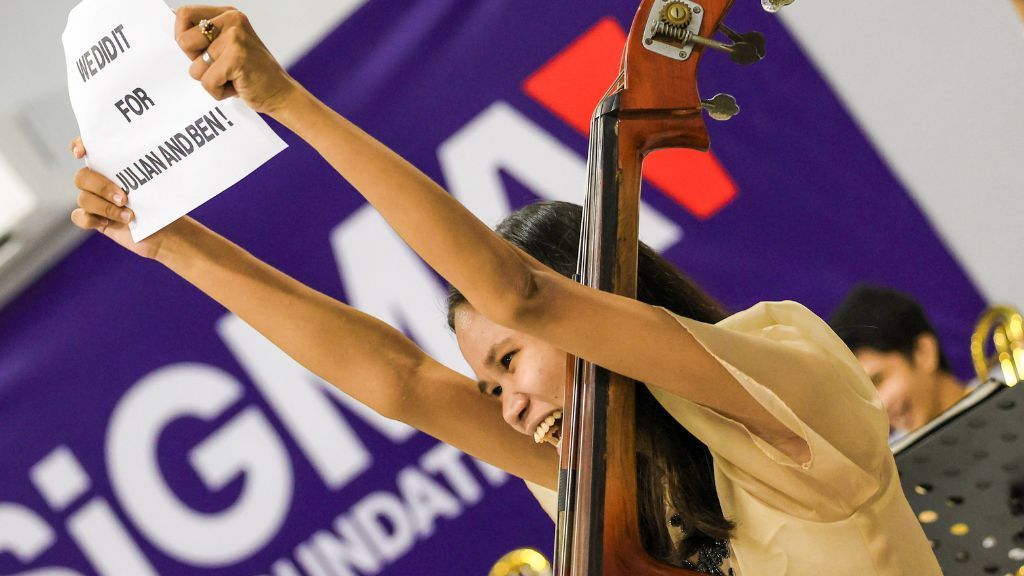- Summits
- EAST EUROPEBudapest02-04 September 2024

- EUROPEValletta11-14 November 2024

- EURASIADubai23-25 February 2025

- AFRICACape Town10-12 March 2025

- AMERICASSão Paulo07-10 April 2025

- ASIAManila01-04 June 2025

- News & Media
- SiGMA News
- Print & Digital
- SiGMA Media
- Directory
- Exhibiting Partners
- SiGMA’s Affiliate Club
- Selling your business?
- Foundation
- M & A Brokerage
- About Us
- Who we are
- How we help
- Let’s connect
As the iGaming industry expands, developers are looking to the past to innovate the future. In the Philippines, there is an evident rise of traditional carnival or perya games finding its way on the digital space.
For Dr. Nestor Castro, professor of anthropology at the University of the Philippines, it is not surprising that traditional local games are turning into iGaming games. “Everything is moving online, especially after the pandemic. Digital versions of traditional games are a natural evolution, providing accessible entertainment during times when physical gatherings are restricted,” Casto told SiGMA News in an online interview.
Meanwhile, ONGaming, an iGaming provider, told SiGMA News said they are currently developing and transforming traditional carnival games, such as the colour game, into engaging online experiences. The company’s CEO, Wayne Thong, and Business Development Manager, JP Pablo, shared insights into this development.
“We were actually inspired by Evolution’s live studio games,” Pablo explained. “They have entertaining games like Crazy Time and Monopoly, which we combined with the traditional perya game, the colour game, to provide a new taste for our Filipino players.” Thong added, “The success of Evolution inspired us to merge traditional games with iGaming. The interactive experience between hosts and players is crucial, and we believe this approach will resonate well with our audience.”
Pablo emphasised the nostalgic appeal of these games, stating, “I grew up enjoying carnival games. Bringing them online means you can enjoy these familiar experiences from the comfort of your home, anywhere, anytime, using your phone or laptop.”
Cultural significance of perya games
Castro provided context on the cultural importance of perya games. “The perya is a fixture in Philippine society, especially during town fiestas. People go there with family and friends to enjoy simple, luck-based games like the colour game. The prizes may not be spectacular, but the thrill of winning is a significant draw.”
Expanding the horizons of iGaming
ONGaming is not limiting its innovation to the Philippines. Thong revealed the company’s plans to develop and certify traditional games from various Southeast Asian countries. “Countries like Malaysia, Indonesia, and Taiwan have their own traditional mini games. We’re studying which ones can be certified and brought online. For example, in Malaysia, we have a game called In Between, which is very popular during Chinese New Year.”
Pablo added, “Our goal is to be relevant in the online gaming industry by focusing on local games that people already know and love. This familiarity will entice players to try our games and help us succeed in this competitive market.”
The future of iGaming in the Philippines and beyond
The iGaming industry in the Philippines holds a strategic position in Asia. “The Philippines was the first country in Asia to legalise online gaming,” Thong noted. “It’s crucial for them to establish themselves before other countries like Thailand, Vietnam, or even Japan catch up.”
Thong stressed the importance of recognition and regulation. “[The Philippine Amusement and Gaming Corporation] PAGCOR needs to enhance its reputation so that when people see their licence, they recognize it as a mark of a reliable platform. This will be key for the Philippines’ iGaming industry over the next decade.”
Pablo, meanwhile, highlighted the significance of relevance. “Platforms need to stay relevant to their market. Focusing on local games helps because people already know the rules and are more likely to engage. This is our strategy to enter and succeed in this industry.”
Recommended for you






















